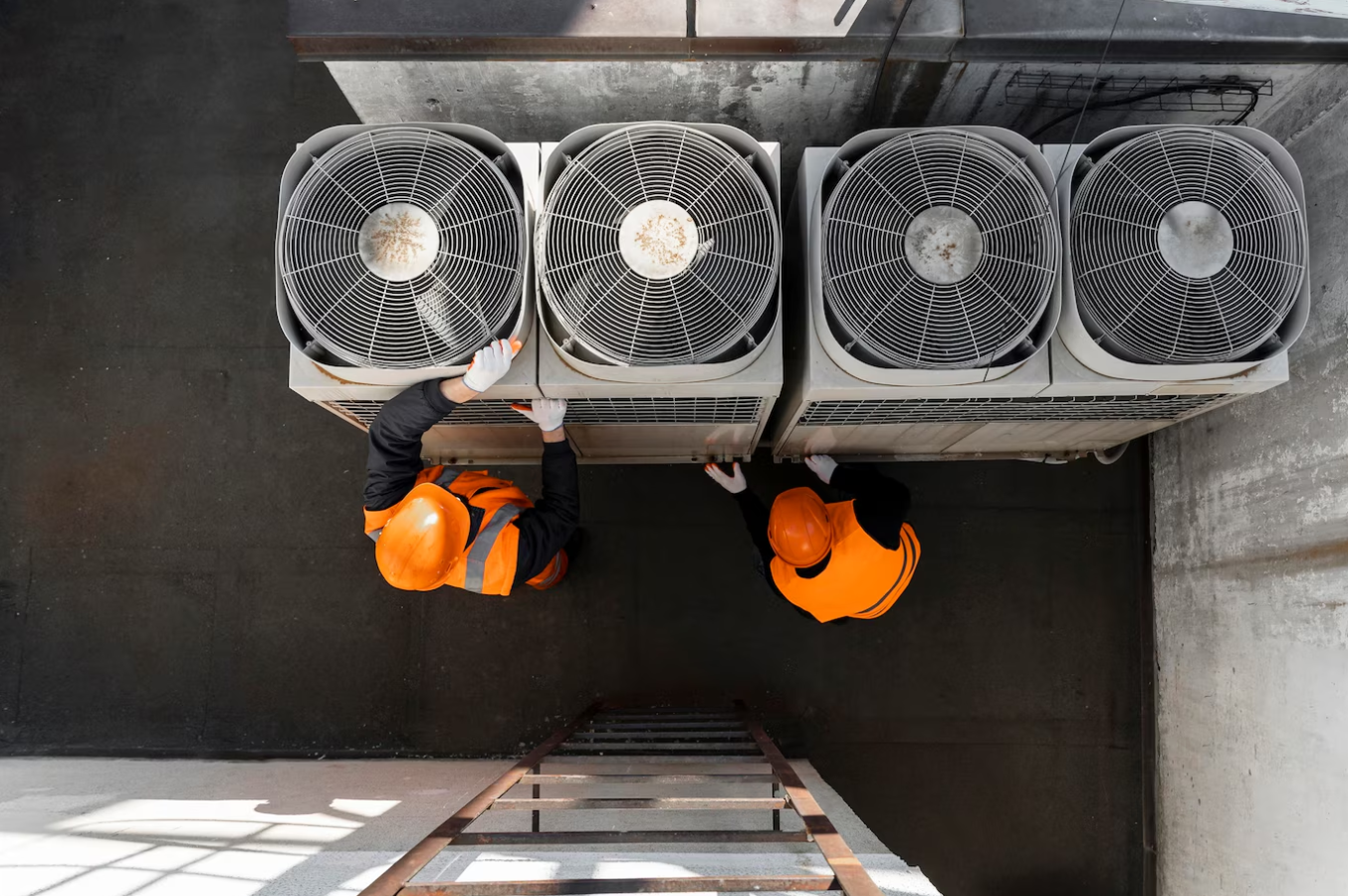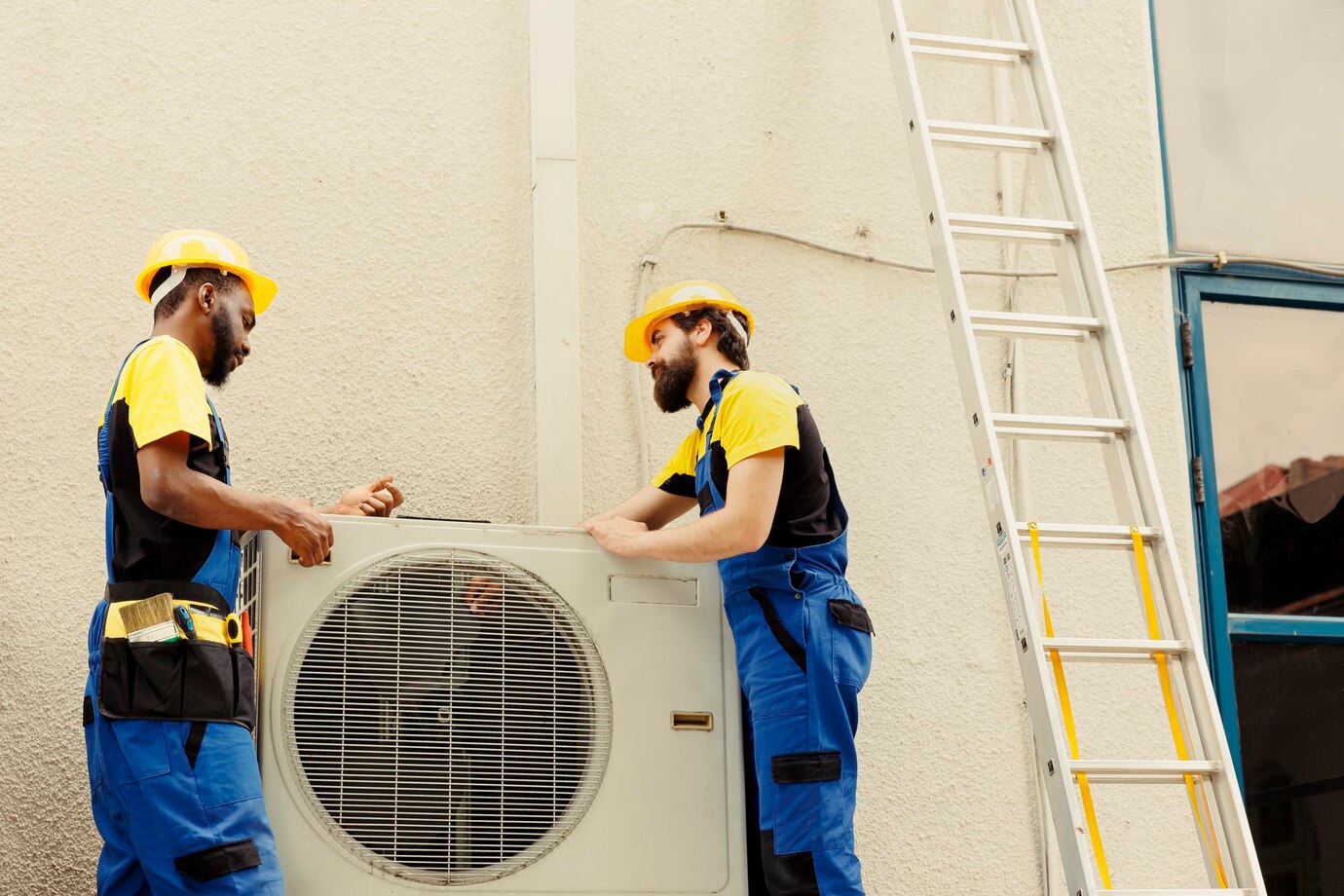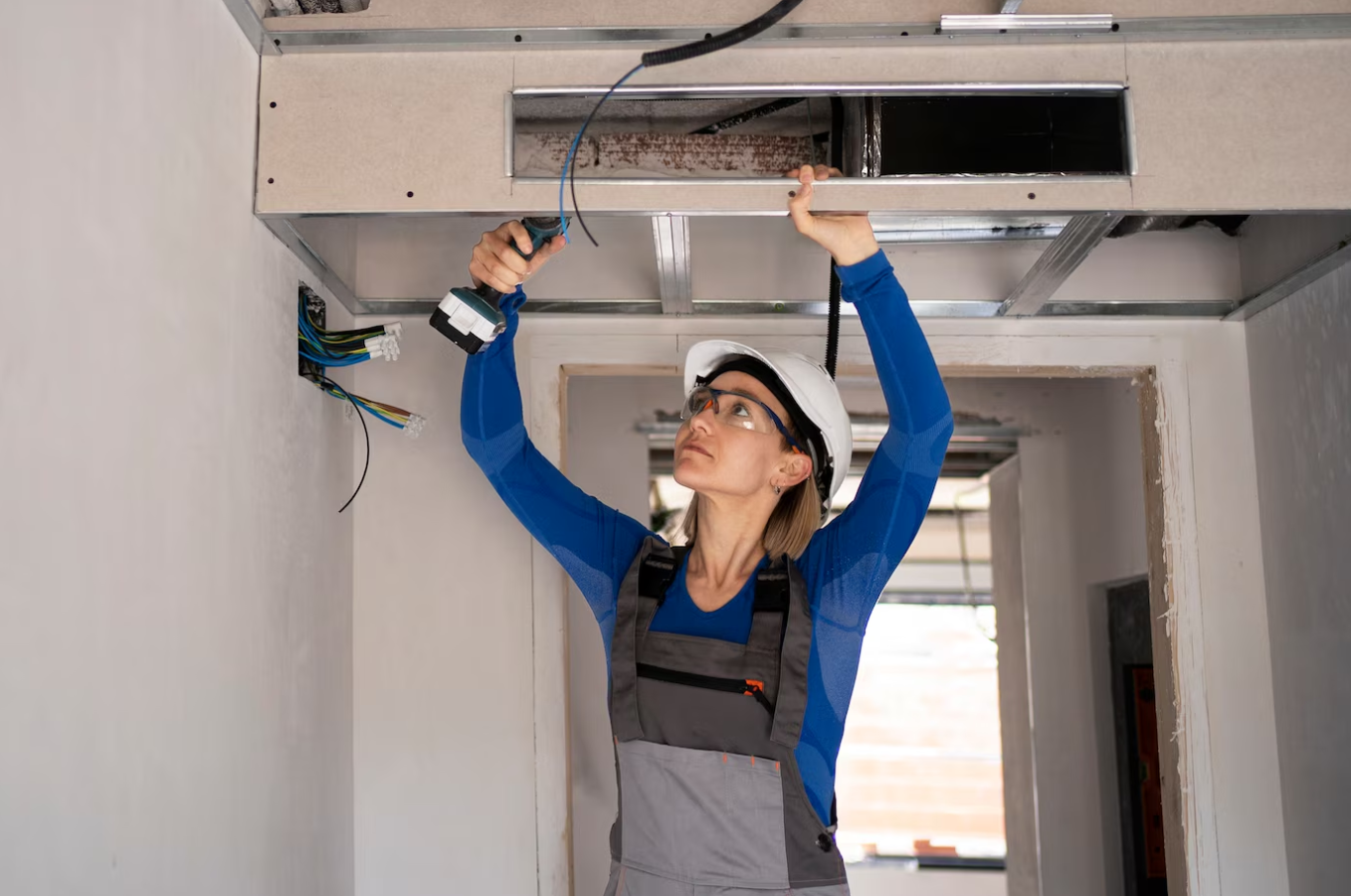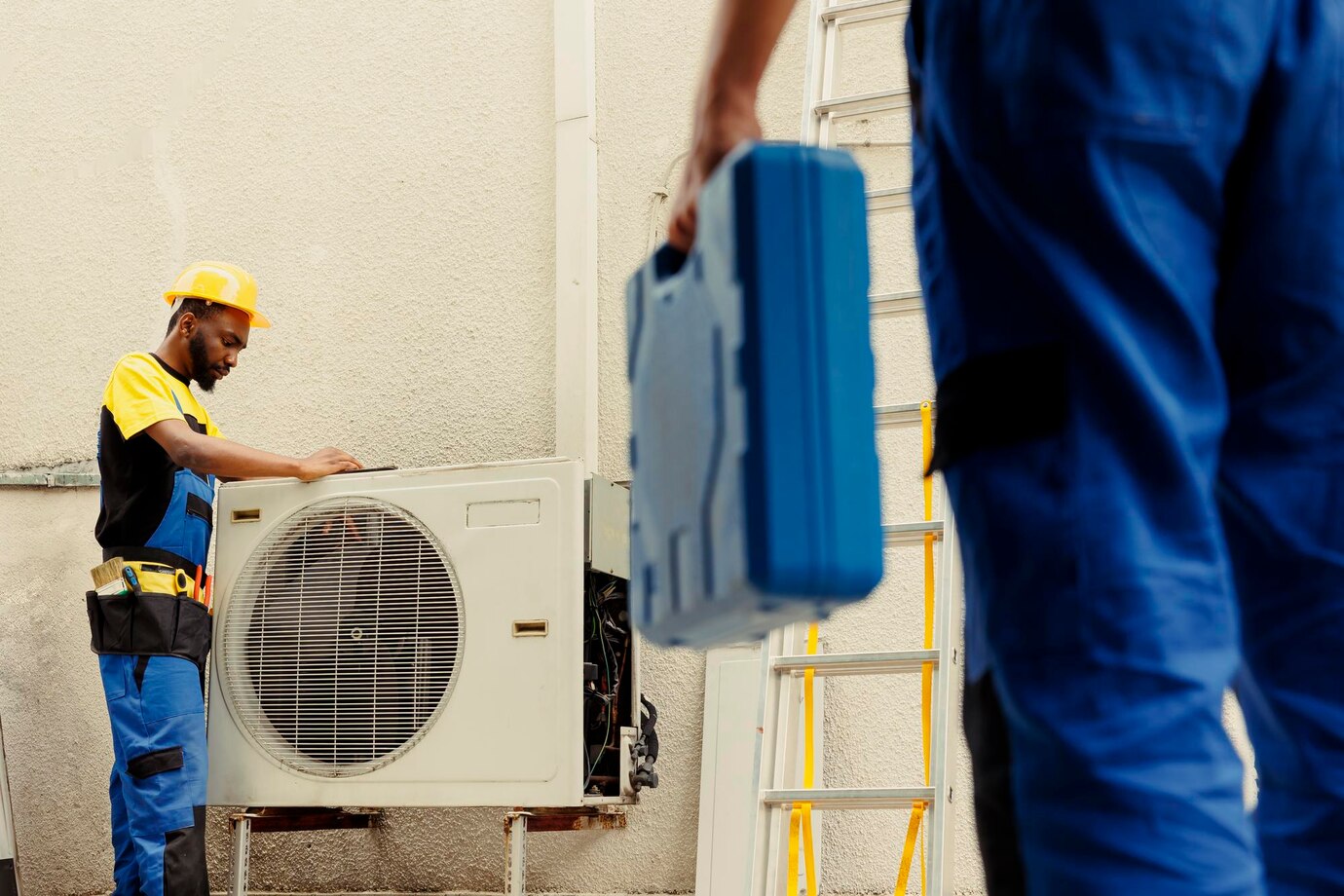How often should HVAC filters be changed? The quick answer is every three months or 90 days.
Let that time frame lapse a little bit, and you could end up with broken parts — like an HVAC blower motor — needing replacing.
Having worked in the heating, ventilation, and air conditioning business for more than 20 years, we’ve seen homeowners and companies have to shell out more money for repairs and maintenance due to forgoing replacing HVAC air filters.
And that’s the last thing we want to happen to you.
Not to worry, though. We’ve got your back.
In this article, we’ll help you better understand HVAC air filter changes by discussing the following:
- How often HVAC filters should be changed
- How HVAC filters work (and therefore why they need replacing)
- Understanding the different types of HVAC filters with what we call MERV ratings
- What happens when you don’t replace an HVAC filter
- The best air filters to buy for homes or business spaces
- Frequently asked questions (FAQ) about HVAC air filter changes
Table: How often you should change your HVAC air filter
| Type of residential or commercial space | When to change an HVAC filter |
| 1. A standard home or commercial space without pets or individuals with allergies 2. For homes or commercial spaces with pets 3. Vacation homes or vacant spaces that don’t see much use | 1. Every 90 days (or 3 months) 2. Every 60 days (or 2 months) 3. Every 9-12 months (or 240-365 days) |
A general rule of thumb: the more use a home or commercial space has, the more often it needs its air filters changed.
How an HVAC air filter works
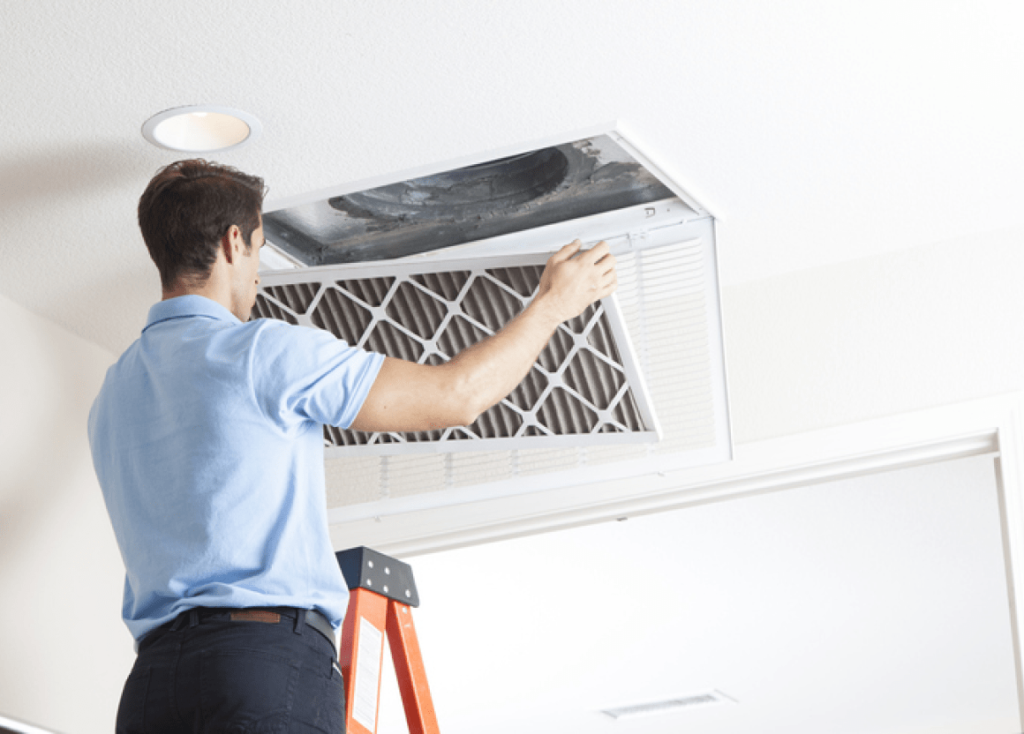
You might be wondering how we came to those numbers. Let’s take a look at how an air filter works, and perhaps that will clarify any questions or curiosities you might have about air filters.
Air filters are made from spun fiberglass (which happens to be the same material used in attic insulation maintenance work), or pleated paper. The filter is framed within cardboard for added stability.
Then, the air filter is placed in the return air duct. A return air duct is responsible for taking the air that’s circulating in your home and/or commercial space and redistributing it, filtering a space of contaminants and pollutants.
The air duct is responsible for cleaning the air, so a person can enjoy a more comfortable atmosphere with healthy indoor air.
The air filter acts as a barrier for the HVAC system, preventing contaminants and pollutants from entering the system.
For example, an air filter blocks out dust, lint, pet hair, mold, bacteria, and other fine particulate matter.
Each air filter has what we call a minimum efficiency reporting value (MERV). The MERV describes the type and size of pollutants that the filter blocks. We’ll dive into the specifics of MERV values, and why they’re important for HVAC filter changes in the next section.
Exploring MERV ratings with HVAC filters
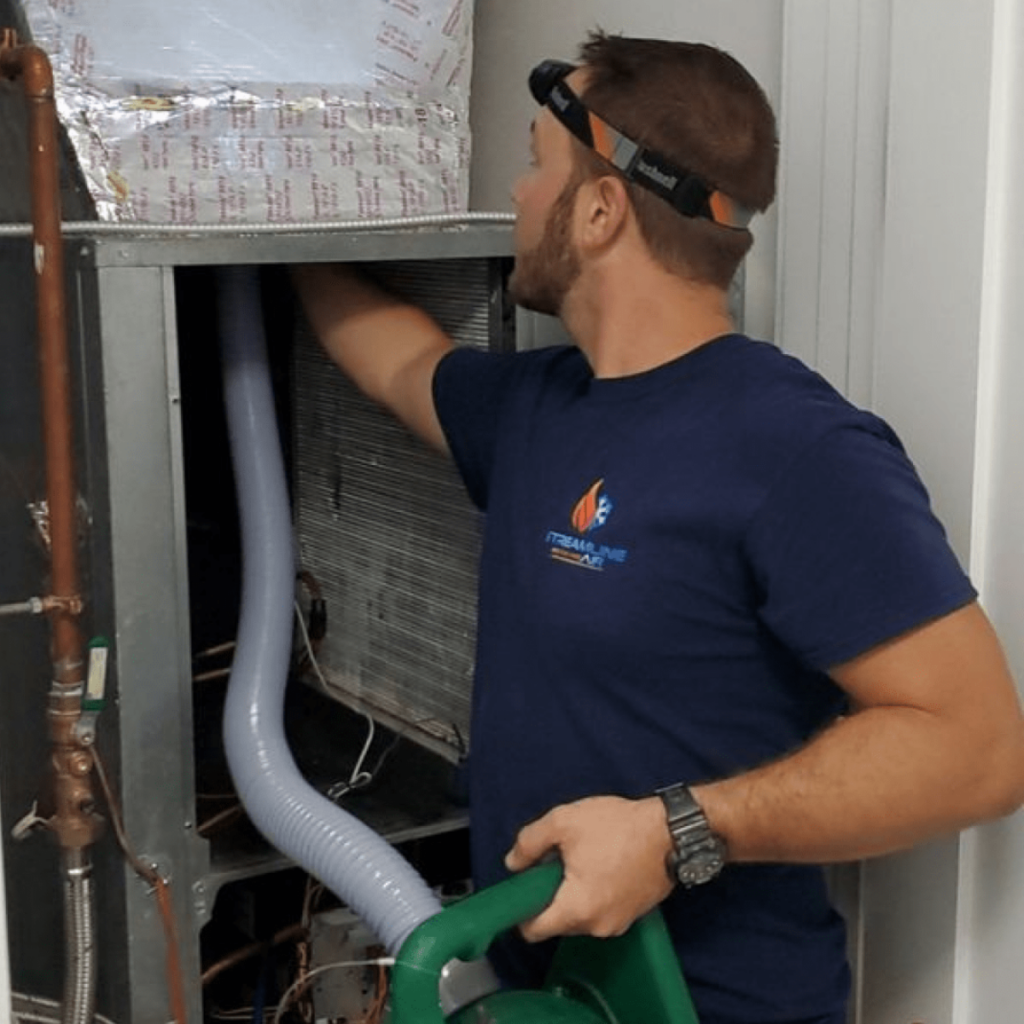
Minimum efficiency reporting values (MERV) are specific numbers that tell us how well an air filter removes fine particles. You can think of MERV as a sort of rating system for an HVAC system’s capacity to remove large and small particulate matter.
Why is MERV important, though? And, what does it have to do with HVAC filter changes?
As air moves through an HVAC system, air filters trap and collect dust, dander, pollen, debris, and other small particles that can clog an HVAC system. The use of air filters can help provide healthier indoor air quality.
But, for an air filter to do its job well, it must have the right filter, a filter with the right MERV rating assigned to it.
In other words, a MERV rating tells us how effective a filter is at stopping contaminants and particles from passing through the filter into the air. Furthermore, filters with higher MERV ratings tend to trap smaller particles than those with lower ratings.
Breaking down MERV ratings
Here’s a quick breakdown of the number behind MERV ratings:
- Air filters with MERV ratings of 16 or below: These HVAC system-grade filters work for residential, commercial, and hospital spaces.
- Air filters with MERV ratings of 17 to 20: These HVAC system filters are used in surgical operating rooms and other contexts where cleanliness is paramount.
But, just because an air filter has a high MERV rating, doesn’t always mean it’s best for your living or working space. In fact, using a high MERV rating on a small indoor space — or a lower MERV rating on a larger indoor space — may impair an HVAC system’s ability to filter air.
That’s because the smaller pores in highly rated air filters create resistance to airflow. If the filter is used in an HVAC system that wasn’t built to work with this resistance, the HVAC system won’t operate well.
And, as a result, air quality will decline, and your heating and cooling system will have to work that much more to operate at peak capacity.
To avoid breakdowns — or if in doubt about what MERV rating and air filter is best for you — always consult with a heating, ventilation, and air conditioning specialist. An HVAC specialist can provide you with tailored recommendations for air filters for your furnace or air conditioner system.
The effects of not replacing (or using) air filters
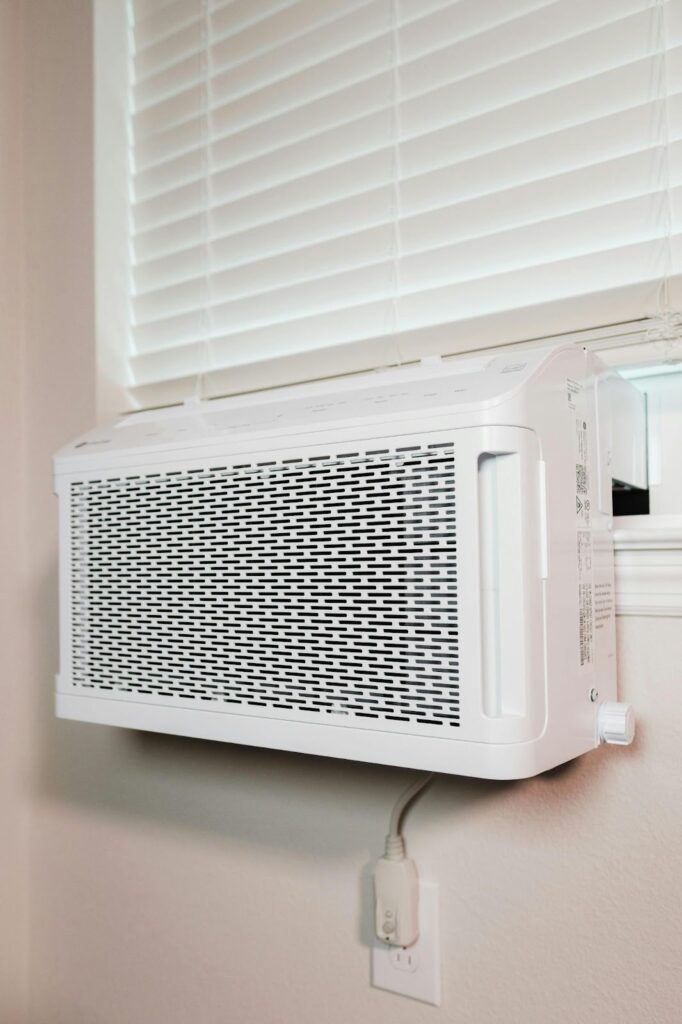
You might be wondering, “What happens if I don’t change my air filter?” That’s a perfectly fair question.
Let’s start with the facts. The air conditioning and furnace filter in your HVAC system isn’t designed to purify the air you breathe as much as it is to protect your home’s (or business’) HVAC system.
But, that doesn’t mean that an air filter doesn’t make a difference in filtering out small, bacterial, mold, and fungi-based particles that can make breathing in living spaces more comfortable.
What happens if you don’t change an air filter is that the filter will fill up with dust and dirt. And, your HVAC system could fail.
As dust jams moving parts — like fans, motors, and valves — less air can make its way into the HVAC system. Then, the HVAC system has to work harder to deliver comparable power and airflow.
What’s more, when an HVAC system becomes clogged and needs repairs, the system risks damage from dust and other contaminants entering it.
In short, you’ll find that your HVAC system isn’t able to reach optimal performance if it becomes dirty.
The best air filters to buy

When the time for HVAC maintenance comes, you’ll want to make sure you have the best of the best when it comes to air filters. The best air filter for an HVAC system is one that fits the following key criteria:
- The right size for your system (you can find this by checking your existing filter or your equipment manual)
- The right filtration level for your living space (Consider pleated air filters, as they often allow for more area to collect dust and other debris than traditional air filters)
High-efficiency particulate air (HEPA) air filters are also a wonderful choice. These filters can “theoretically remove over 99.97% of dust, pollen, mold, bacteria, and airborne particles with a size of 0.3 microns (µm),” according to the U.S. Environmental Protection Agency (EPA).
And, with the HEPA filter market expected to grow over the next decade — especially in industrial settings — there’s never been a better time to reach out to a local HVAC professional for help updating retrograde air filtration systems.
Did you know?
Did you know that this is what clogged air filters look like? A clogged air filter can lead to shorter lifespans on an HVAC system.
Change your filter every 2-3 months to keep your system running smoothly and efficiently. If in doubt, you can always give us a call to determine how often you need to change your air filters.
Get help from Straightforward Professionals for HVAC filter changes
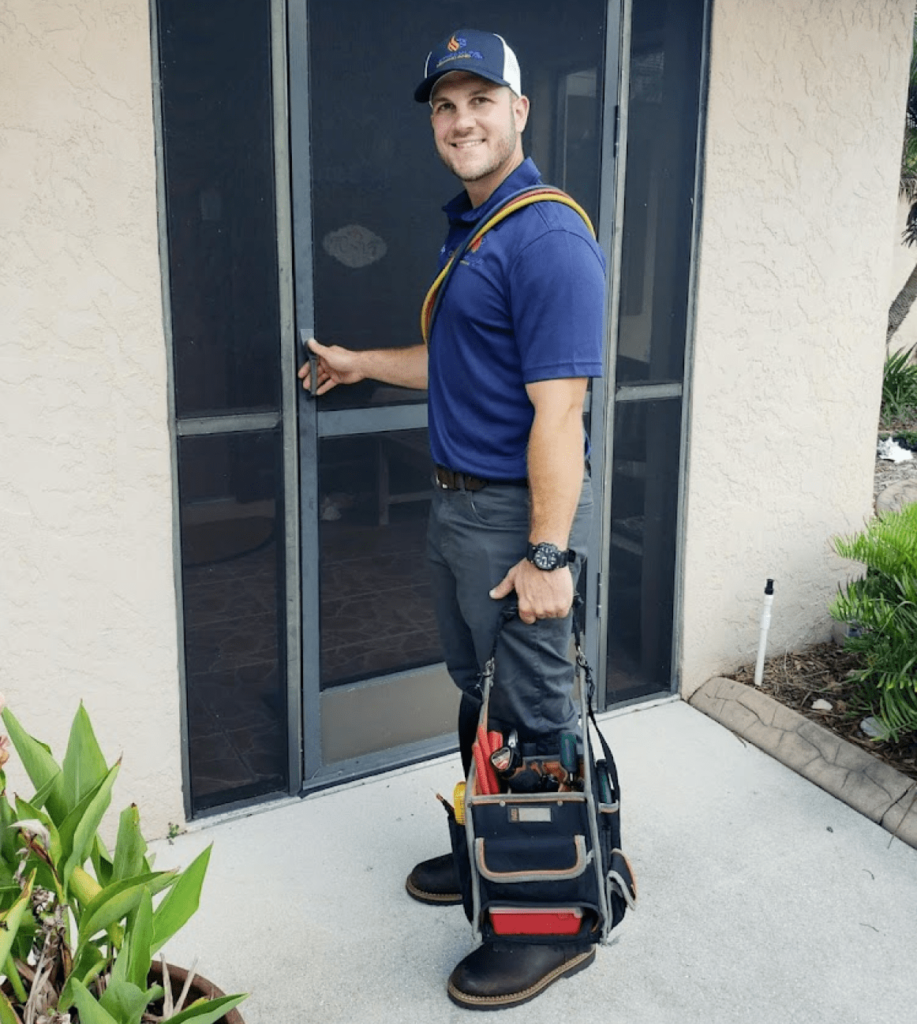
In summary, how often you change your HVAC air filters depends on the size of your indoor space, how frequently your HVAC system is used, whether you’re susceptible to allergens, and if you have pets occupying your living and/or work space.
Consider the following maintenance schedule to better understand when to change your HVAC system’s air filters.
- Every 20-45 days: for homes or indoor spaces with multiple pets — or people living with allergies and respiratory conditions — air filters should be changed.
- Every 60 days: for people who have pets in their indoor space but don’t live with a chronic respiratory condition or allergy
- Every 90 days: the consensus among HVAC companies for when to change an air filter
- Every 9-12 months: for people with vacation homes or vacant spaces that aren’t often used.
If you live in the hot and muggy Florida region, chances are you’ll need air filter changes more often. That’s where we come in.
The Straightforward HVAC Professionals at Streamline Heating and Air have more than 20 years of experience installing and maintaining HVAC systems for all different kinds of homes and commercial spaces.
To learn more about what our friendly HVAC experts can do for you, don’t hesitate to reach out. We’d be more than happy to help!
Frequently asked questions (FAQ) about HVAC filter changes

What happens if I clean my air filter instead of replacing it?
It depends. Some air filters are designed to be washed and reused, whereas others are designed to be thrown out and replaced.
You’ll never go wrong by following the manufacturer’s guidelines on your HVAC system. Depending on what the manufacturer’s instruction manual says, you’ll have a better idea of whether your HVAC system can use reusable air filters.
How do I know when my HVAC filter needs to be changed?
A visual inspection is all it takes. Ideally, you’ll want to inspect your filter every month.
If you hold your filter up to a light — and the light doesn’t pass through the filter — the filter is clogged and needs changing.
Other tell-tale signs that an HVAC filter may need to be changed include:
- Accumulated dust around air vents
- Strange smells coming from an HVAC system
- Increases in electricity bills
- Increases in susceptibility to allergens
- Overheating units
Which factors influence whether an HVAC filter needs changing?
All of the following factors can influence the timing of replacing an HVAC filter:
- Allergies and respiratory conditions (such as asthma)
- Whether pets occupy the space
- The size of the home and/or commercial space
- How frequently the HVAC system is used
- Outdoor and indoor air quality
- How old the HVAC system is
- The type of filter on an HVAC system
If you notice your heater isn’t working — or your A/C unit isn’t blowing cold air — you may want to reach out to an HVAC pro to rule out which factor could be the root cause of the disrepair.
“Streamline has our back for HVAC.”
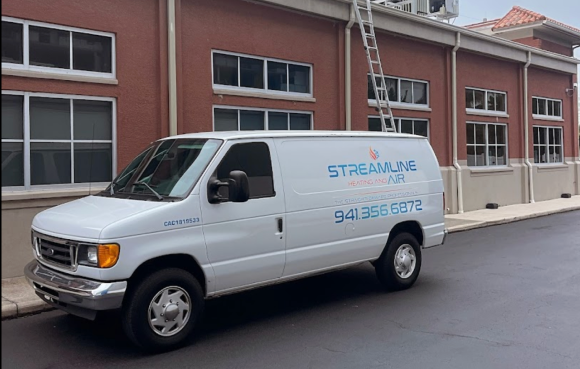
“Great job again by Quentin. Reliable and efficient service. As snowbirds, it’s comforting to know Streamline has our back for HVAC.” – Douglas G.., satisfied Streamline Heating and Air customer
Meet Sarasota, FL’s Heating and Cooling Experts


